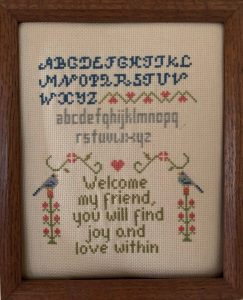
Lately we’ve taken an unusual interest into the architecture of tiny homes, avidly touring them on YouTube videos. There’s something intriguing about the savvy use of space for maximum storage, and the unique design people bring to the décor of their homes. Skylights, built in loft ceilings, create a spacious feeling, and tiny homes are often located in beautiful settings. The owners express a lightness that comes from being free of debt and responsibilities for larger homes. Their materials are often a combination of lucky finds from the demolition of older houses, or re-purposed wood to make floors, ceilings, kitchen counters and furniture, or old stained glass for windows. And most people readily admit that they could not have built these homes without the combined volunteer labour of friends and family.
The word bricolage comes from the French, and conveys the idea is that there is a range of diverse materials, whatever or whoever is available, to construct a place or maintain a life. Bringing them together emphasizes not only their uniqueness, but also that each piece contributes something to the whole. Sometimes what has been rejected from one place becomes valuable in another.
The Bible picks up on this theme when it points to Christ as the stone that was rejected by the builders that eventually gains the place and honour of the cornerstone or capstone. Sometimes it takes a long time to determine how something or someone can be the best fit. For the Bahá’í Temple of South America, architect Siamak Hariri found the perfect luminescent stone in a quarry in Portugal. The owner told him that this vein in the rock had been waiting for seven generations. Rejected for decades, but finally the perfect choice for this sacred space.
Bricolage is not only an architectural term, but can also be a literary one. Myths and stories, too, constantly borrow and adapt from what is at hand in each unique telling. The details of the story matter, call us to pay attention. The weaving of the tale pulls in threads from many sources.
We’ve been living in a disposable society, people and things easily discarded when there’s no longer perceived value. That attitude seems to be shifting as we become aware of the impact on our world and realize the beauty that can result when we use what is at hand or re-purpose the treasures of the past. We can include different cultures and ways of being human to make a beautiful mosaic. With this special kind of insight, there is potential in all created things.
The Junk Box
My father often used to say,
“My boy, don’t throw a thing away:
You’ll find a use for it some day.”
So in a box he stored up things.
Bent nails, old washers, pipes and rings,
And bolts and nuts and rusty springs.
Despite each blemish and each flow.
Some use for everything he saw:
With things material, this was law.
And often when he’d work to do
He searched the junk box through and through
And found old stuff as good as new.
And I have often thought since then,
That father did the same with men.
He knew he’d need their help again.
It seems to me he understood
That men, as well as iron and wood
May broken be and still be good.
. . .
Though bent and twisted, weak of will,
And full of flaws and lacking skill
Some service each can render still.
Edgar Guest

